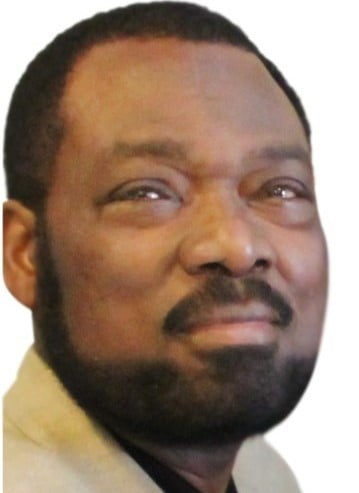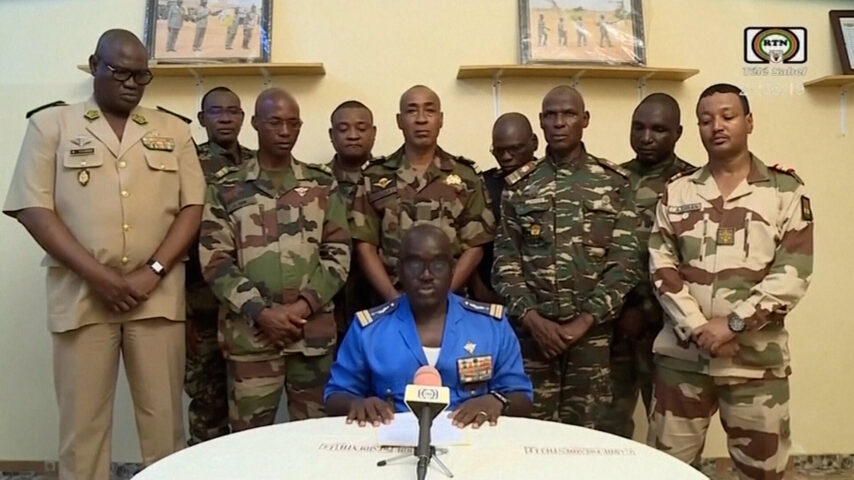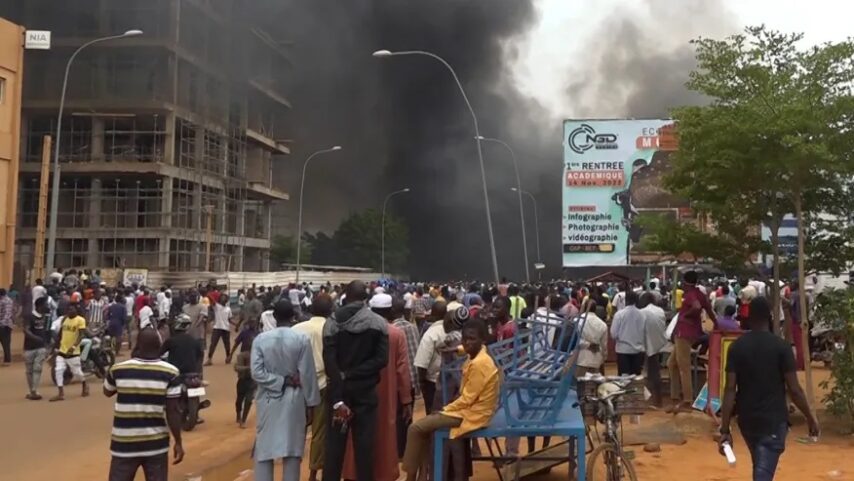What the coup in Niger means for the United States
BY SOUMANOU SALIFOU


Last Wednesday’s coup in Niger drew uproar from all over the world: from U.N. Secretary-General António Guterres who pointed out the likely increased insecurity risk for the region; from European nations, especially Niger’s best European ally, France; and from African leaders who dispatched one of their own, Beninese President Patrice Talon—known for destroying his own country’s democracy once hailed as a beacon in Africa—to help restore democracy and the rule of law in Niger. But the United States’ condemnation, coming from Secretary of State Antony Blinken, Vice President Kamala Harris, and the leaders of the House Foreign Affairs Committee, carried a special weight in the confusing situation that is still unfolding three days after the coup.
United States’ unwavering condemnation
No sooner did news of the coup attempt in Niger began spreading over the world late on Wednesday evening in Niamey, Niger’s capital, than the office of the U.S. State Department’s spokesperson, Matthew Miller, issued a press release around noon, Washington, D.C. time, condemning what later climaxed into the end of President Mohamed Bazoum’s regime. “The United States is gravely concerned about developments in Niger. We strongly support the democratically elected President and condemn in the strongest terms any effort to seize power by force and disrupt the constitutional order,” the press release reads.
Six hours later, the office of the State Department’s spokesperson announced that Secretary of State Antony Blinken had spoken to the deposed Nigerien head of state who was held hostage at the presidential palace by the coup leaders. The second press release states: “The Secretary conveyed the unwavering support of the United States for President Mohamed Bazoum and Niger’s democracy. He emphasized that the United States stands with the Nigerien people and regional and international partners in condemning this effort to seize power by force and overturn the constitutional order.”
The same day, in a joint statement issued by House Foreign Affairs Committee Ranking Member Gregory W. Meeks and his colleague, Chairman Michael McCaul, the two legislators echoed the same concerns and condemned the coup, saying, “Niger is a critical partner to the United States and to others in the region and we welcome Nigeria’s swift action to mediate. We will continue to closely follow the situation, including the safety and well-being of U.S. citizens.”
The Sahel region, the new terrorist front
Arguably, the greatest external security threat faced by the United States today is terrorism. Years after the horrible 9-11 attacks which claimed nearly 3,000 lives on the American soil, a new terrorism front emerged in the Sahel region and quickly expanded as a direct consequence of the death of the Libyan leader, Muammar Gaddafi, during the 2011 Libyan civil war instigated by then-French President Nicolas Sarkozy to cover up Gaddafi’s generous funding of his 2007 election campaign. (The campaign violation case surfaced later in 2020 and earned Sarkozy one year of house arrest.)
Ironically, acting under the cover of NATO, the United States played a crucial role in the Libyan civil war leading to a chaos which dramatically increased the terrorism risk for the whole world. (It was an American Predator drone controlled from a base near Las Vegas that fired the first missiles at a convoy in which the deposed Libyan leader was fleeing to his hometown of Sirte.) In the aftermath of the war, weapons of all manner got into the hands of jihadists who became an immediate threat to their own leaders and people, and a remote threat to the United States—by far the jihadists’ biggest target.
“Let’s stop them there before they come here”

In addition to the stringent, life-changing travel requirements to fight terrorism, the United States adopted a “Let’s stop them there before they come here” approach. In this context, the United States—along with other western nations—contributes money, military personnel, and extensive diplomatic efforts to help the African countries that face the terrorist risk directly.
Over the past few years, the counterterrorism effort has been complicated by several developments. Mali, home (and target) of the jihadists, broke ties with its traditional European ally, France, and invited the private Russian army Wagner on its soil in 2021. Without hosting Wagner on its soil, neighboring Burkina Faso, another home and target of the jihadists, started flirting with Russia and also kicked out their traditional European ally, France. Niger, therefore, remained the West’s only ally in the counterterrorism fight, being one of the few countries that have agreed to house in the region U.S. drone bases and hundreds of American Special Forces and logistics experts who are involved in counterterrorism operations against Boko Haram and ISIS affiliates. France also maintained a large military presence in Niger, along with an important economic aid package.
Significantly, Blinken’s visit to Niger last March was the first one by a U.S. Secretary of State to the little-discussed West African nation. Once there, the top U.S. diplomat announced $150 million in new economic aid. In a news conference in Niamey, Blinken praised the host government for its efforts to combat terrorism.
In light of the above, the U.S. government is determined not to allow a situation conducive to the possible repeat of an attack like the one that took the lives of four U.S. Army special operations soldiers in an ISIS ambush in this very nation of Niger in 2017.
Not surprisingly, U.S. Vice President Kamal Harris added her voice to the U.S. condemnation of the still-fluid situation at the presidential palace where the deposed president vows to stay in power. According to the Nigerian newspaper Daily Trust, quoting the Nigerian government spokesperson Dela Alake, in a phone call to Nigerian President Bola Tinubu on Thursday, “Kamala Harris has expressed strong support for Nigeria’s efforts toward the restoration of constitutional order in the Republic of Niger.”

